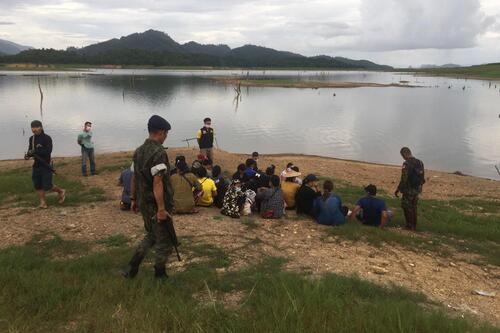Migrants Struggle to Return Despite Sealed Borders

Migrants Struggle to Return Despite Sealed Borders
Covid-19 has disrupted life for the vast majority of people all over the world in recent months. In Wassayos Ngamkhan and Penchan Charoensuthipan’s article, “Migrants Struggle to Return Despite Sealed Borders”, they look at the effects of the pandemic on migrant workers attempting to come into Thailand. In an attempt to curb further Covid outbreaks, the government closed borders with surrounding countries and has not yet reopened them, and the Immigration Bureau has been trying to crack down on illegal crossings. Despite these efforts, many migrant workers have been attempting to cross the border to return to work, often traveling by foot or employing people smugglers to help them across. Many have valid work visas and would be able to cross into Thailand legally once borders reopen, but the uncertainty of when they will be able to return is forcing them to cross illegally in order to provide for their families.
The Thai government has insisted that none of those crossing the border illegally are victims of labor or human trafficking, but the description of how migrants are entering the country is eerily close to the beginning parts of many trafficking stories. People from rural countries pay middlemen and smugglers to get them across borders and help them to find better paying work, only to be trapped in vicious cycles of debt and forced into labor by their smugglers or the highest bidder. It is likely true that most of those crossing the border are workers willingly returning to legitimate jobs they already held before the pandemic, but the government’s claim that none of those crossing are victims of trafficking seems far-fetched.
Regardless of the exact nature of the border crossings that are currently happening in Thailand, this article does raise interesting considerations about the effect the Covid-19 pandemic is having on migrant workers and the flow of people internationally. For many, the effect of closed borders goes far beyond not being able to visit loved ones or go on vacations, it impedes on their economic stability and ability to provide for their families. This disruption of migration is also likely to have significant effects on industries that are heavily reliant on foreign labor, such as domestic work, fishing, and agriculture. In the coming years, it will be interesting to see if these industries ever return to their pre-pandemic ways or if they will adopt new practices and sources of labor.